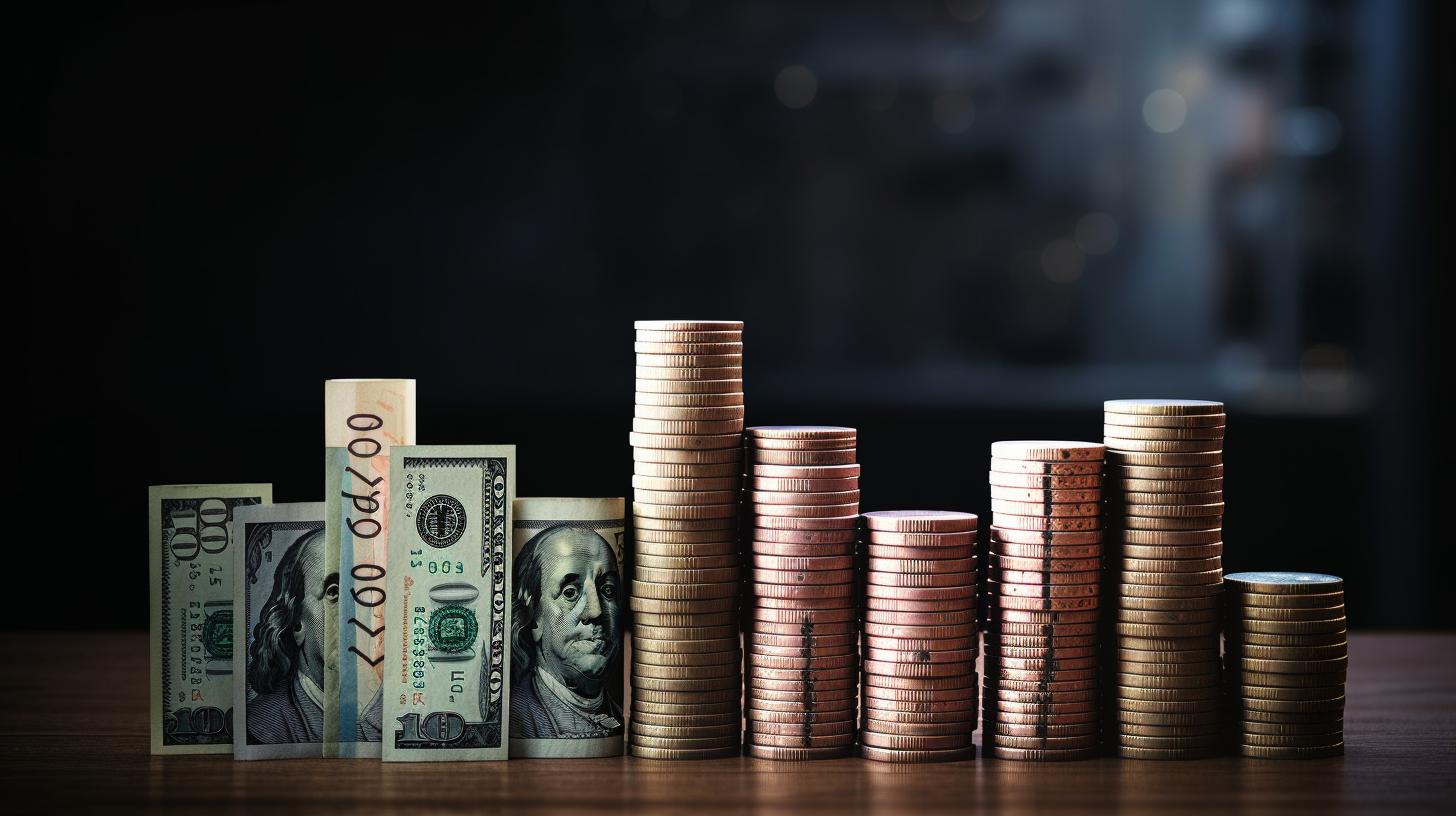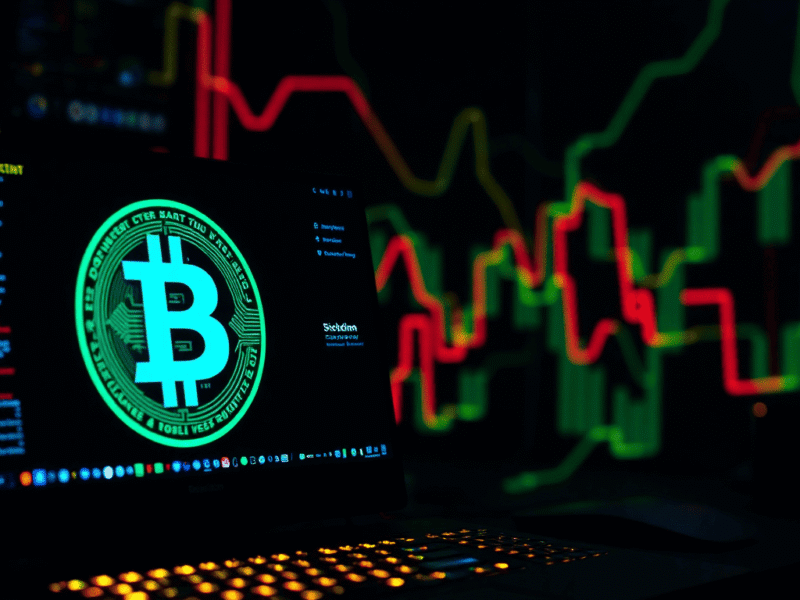In the bustling heart of global finance, Forex trading – short for ‘foreign exchange’ – has risen as one of the largest financial markets on the planet. On any given day, a staggering $6.6 trillion is exchanged between nations, businesses, and individual traders. Yes, you read that right: trillion, with a ‘T’. Such immense figures naturally give rise to a burning question among aspiring traders and curious onlookers alike: just how much do individual Forex traders pocket every month?
Forex trading isn’t just about exchanging one currency for another. It’s a sophisticated dance of speculation, risk management, and deep market analysis. The earnings of traders vary as vastly as the currencies they trade. Some walk away with significant profits, while others face disappointing losses.
Yet, amid the tales of luxury yachts and dream vacations, there’s a sobering reality that often remains unspoken. Not everyone strikes gold in this game. But then, just how wide is the earnings gap? Let’s embark on a journey to unravel the true earnings potential in the Forex world, shattering myths and confronting truths along the way.
Understanding the Forex Market
Basics of Forex Trading
At its core, the Forex (Foreign Exchange) market revolves around the trading of currencies. Every time you exchange dollars for euros or yen for pounds, you’re dabbling in Forex. However, for traders, this process is about much more than just holiday spending money.
- Definition and Operation: The Forex market operates as a decentralized marketplace where participants trade currencies based on their current values. Unlike stock markets, there’s no central exchange, but instead, a network of computers and brokers around the world.
- Major Currency Pairs: In the trading world, certain currency pairs dominate the scene, known as the ‘majors.’ These include EUR/USD (Euro/US Dollar), USD/JPY (US Dollar/Japanese Yen), and GBP/USD (British Pound/US Dollar), to name a few. Their significance? High liquidity and massive trading volume, which often means smaller spreads and, thus, lower transaction costs.
Forex Market vs. Cryptocurrency Market
As digital currencies like Bitcoin and Ethereum surge in popularity, many draw parallels between Forex and the burgeoning cryptocurrency market. Yet, several key distinctions set them apart:
- Volatility: Cryptocurrencies are notorious for their price swings. While Forex also sees its fair share of volatility, it’s generally more stable in comparison to the wild crypto roller coaster.
- Market Hours: The Forex market operates 24 hours a day, five days a week, facilitated by global time zones. Cryptocurrencies, however, are traded 24/7, with no closing hours, making it a non-stop trading arena.
- Participants: While institutional investors, banks, and governments heavily influence the Forex market, the crypto realm is still relatively young and is driven more by individual retail traders and investors.
In essence, while both markets revolve around trading and speculation, their mechanics, influencers, and overall vibe can be starkly different.
Factors Influencing Forex Trader Earnings
Experience and Skill Level
Newbies vs. Seasoned Traders: Much like any profession, there’s a palpable difference in earnings between a novice and a seasoned Forex trader. A beginner might be swayed by emotions, leading to impulsive decisions, while a veteran knows the importance of patience and strategy. For instance, a rookie might exit a trade prematurely at the first sign of loss, whereas a seasoned trader might understand that short-term losses can precede longer-term gains.
Importance of Continuous Learning and Adaptation: The Forex market is ever-evolving. A strategy that worked yesterday might not be effective today. Consider the case of John (a pseudonym), who relied on a specific trading pattern for years. When global economic conditions shifted, his once-reliable pattern started to fail, leading to significant losses. Had he been more adaptive and committed to continuous learning, he might have foreseen these changes and adjusted his strategy accordingly.
Amount of Capital Invested
How Starting Capital Affects Potential Earnings: In Forex, your initial capital plays a pivotal role in determining potential earnings or losses. A trader with a $1,000 account making a 10% monthly return would earn $100. In contrast, a trader with $100,000 would earn $10,000 with the same percentage return. It’s crucial, however, to note that a larger account also means increased risk exposure.
Market Conditions
Influence of Global Events and Economy: The Forex market doesn’t operate in isolation; it’s intricately linked to global events and economic conditions. Take, for example, Brexit. The uncertainty surrounding the UK’s decision to leave the EU saw the British Pound fluctuating wildly. Traders who anticipated these moves and positioned themselves accordingly reaped substantial rewards, while others faced losses. Similarly, events like global pandemics, geopolitical tensions, or major economic announcements can swing the market in unpredictable directions.
Realistic Earnings: Debunking Myths
The Myth of Quick Riches
The allure of the Forex market often comes packaged with dazzling tales of traders turning modest sums into fortunes overnight. While such stories aren’t entirely unheard of, they’re far from the norm.
The Reality of Forex Losses and Risks: According to a report by a leading finance research firm, nearly 70% of retail Forex traders experienced a loss over the past year. These statistics underscore a sobering truth: Forex isn’t a guaranteed ticket to wealth. Factors such as leverage, which can amplify both gains and losses, add another layer of complexity and risk.
It’s easy to get caught up in the success stories and forget the silent majority facing setbacks. For every trader showcasing their luxury car on social media, countless others grapple with losses, some even facing financial ruin.
Importance of Risk Management
If there’s one mantra seasoned Forex traders live by, it’s this: Protect your capital. Earning profits is essential, but minimizing losses is equally, if not more, crucial.
Strategies to Protect Capital and Maximize Gains:
- Stop-Loss Orders: By predetermining the maximum loss you’re willing to bear on a trade, you can automatically exit a position once the market hits this level.
- Diversification: Just as with investing, diversifying trades can help spread risk. By not putting all your capital into a single currency pair, you can mitigate potential losses.
- Continuous Monitoring and Learning: Markets evolve, and so should your strategies. Regularly reviewing and tweaking your trading approach based on current market conditions is paramount.
By prioritizing risk management, traders can ensure they live to trade another day, even after facing a string of losses.
Case Studies: Forex Trader Earnings
Novice Trader: Anna’s Journey
Anna, an enthusiastic newcomer, dived into the Forex market with dreams of quick riches. Armed with a $2,000 account and a handful of online courses, she believed she was ready to conquer the world of currencies.
Typical Pitfalls:
- Overleveraging: In her initial trades, Anna used maximum leverage, hoping to amplify her gains. However, this also magnified her losses when the market went against her predictions.
- Ignoring Stop-Loss: On multiple occasions, Anna avoided setting stop-loss orders, believing the market would turn in her favor. Unfortunately, this led to substantial drawdowns in her account.
- Chasing Losses: After facing a series of losses, she increased her trade sizes, hoping to recover. This gamble only compounded her losses.
By the end of her first year, Anna’s initial $2,000 had dwindled to just $750, highlighting the steep learning curve that many novice traders face.
Professional Trader: Michael’s Strategy
Michael has been navigating the Forex waters for over a decade. With an initial capital of $10,000, his consistent strategies and discipline have grown his account substantially.
Earnings Potential: Over the years, Michael has averaged a monthly return of 4-5%. With compound interest and the occasional addition of profits back into his trading capital, his account has seen exponential growth.
How He Maintains Consistency:
- Disciplined Strategy: Michael sticks to well-researched strategies, rarely deviating based on emotions or market rumors.
- Continuous Learning: He invests in regular training and stays updated with global economic news, ensuring he’s always ahead of major market shifts.
- Risk Management: Never risking more than 1-2% of his capital on a single trade, Michael ensures that even a series of losses won’t cripple his account.
While Michael has had his fair share of losses, his consistent approach and dedication to the craft have ensured long-term profitability.
Conclusion
The world of Forex trading is as vast as it is intriguing. From understanding the foundational elements of the market to debunking common myths, we’ve delved deep into what it truly means to be a Forex trader. While tales of monumental success might dominate headlines, it’s crucial to remember the journey’s intricacies. Experience, capital, and ever-changing market conditions play pivotal roles in a trader’s earnings trajectory. To all aspiring Forex traders, arm yourself with thorough research, continuous learning, and unyielding discipline. The road might be challenging, but with informed decisions, the potential for success is within grasp.
FAQs
To begin with Forex trading, you should first educate yourself about the basics of the market, trading strategies, and risk management. Several online resources, courses, and books are available to guide newcomers. Once equipped with knowledge, select a trusted broker, set up an account, and start with a demo account to practice without real money.
“Better” is subjective and depends on individual preferences. Forex trading involves traditional currencies and has been around for decades. It’s generally more stable compared to the highly volatile cryptocurrency market. However, cryptocurrency trading might offer higher returns due to its volatility, but it also comes with increased risk. Both markets require thorough research and strategy.
Starting capital varies by individual. However, many experts advise starting small, especially for beginners. A sum that you’re willing to lose without affecting your financial stability is a safe bet. Remember, it’s possible to start with as little as $100 with some brokers.
While we don’t endorse any specific platforms, it’s crucial to research and choose brokers with good reputations, proper licensing, and favorable user reviews. Always ensure the broker you select adheres to regulatory standards of your country.
Long-term success in Forex trading requires continuous learning, discipline, and effective risk management. Consistently reviewing and adjusting your trading strategies, staying updated with global news, and never trading based on emotions are key.



